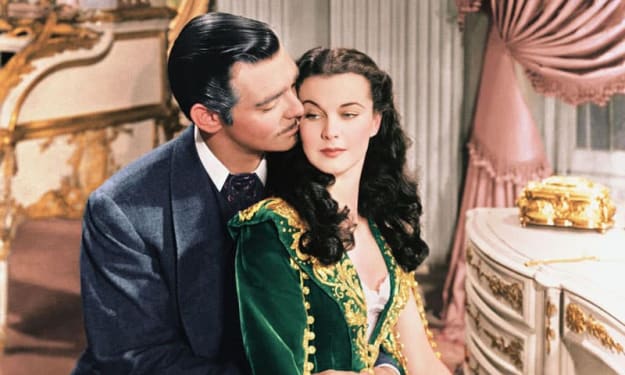A Filmmaker's Guide to: Idealism
Film Studies (Pt.69)

In this chapter of ‘the filmmaker’s guide’ we’re actually going to be learning about literature and film together. I understand that many of you are sitting in university during difficult times and finding it increasingly hard to study and I understand that many of you who are not at university or not planning on it are possibly stuck of what to do, need a break or even need to catch up on learning film before you get to the next level. This guide will be brief but will also contain: new vocabulary, concepts and theories, films to watch and we will be exploring something taboo until now in the ‘filmmaker’s guide’ - academia (abyss opens). Each article will explore a different concept of film, philosophy, literature or bibliography/filmography etc. in order to give you something new to learn each time we see each other. You can use some of the words amongst family and friends to sound clever or you can get back to me (email in bio) and tell me how you’re doing. So, strap in and prepare for the filmmaker’s guide to film studies because it is going to be one wild ride.
Idealism

What is it?
Idealism is often stated to be an unrealistic pursuit of perfection in anything. This can be work, appearances, relationships etc.
In literature, idealism is often met with failure and disappointment and so, the character or narrator learns something about themselves and why they should not be idealistic in the process. The other aspect of idealism is appearances over personality. The character focuses on making their appearance the best they can whilst also being a troubled or bad person. This entails the study of physiognomy which you can look up - I think you will be pleasantly surprised.
Here are some novels in which you can investigate idealism in different ways:
- American Psycho by Bret Easton Ellis
- Dr. Jekyll and Mr. Hyde by Robert Louis Stevenson
- Martin Eden by Jack London
- A Tale of Two Cities by Charles Dickens
- Crime and Punishment by Fyodor Dostoevsky
- Don Quixote by Miguel de Cervantes
- Dr. Faustus by Christopher Marlowe
- The Sorrows of Young Werther by J.W Goethe
- The Giaour by Lord Byron
- Animal Farm by George Orwell
- The Picture of Dorian Gray by Oscar Wilde
What about in film?

In film, idealism must be written into character traits and not into the main story. Why? Well because idealism is a personality trait rather than a plot device. In film, we need character or characters to be idealist and then we either need this to change their personality, change the personality of those around them or we need it to break down the storyline through its inventiveness and unrealistic nature.
Here are some films you can watch in order to view how idealism harms the character and the storyline in different ways:
- American Psycho
- Requiem for a Dream
- Eternal Sunshine of the Spotless Mind
- Marie Antoinette
- The Grand Budapest Hotel
- The Wolf of Wall Street
- Dead Poets Society
- Amelie
- Darkest Hour
- Jerry Maguire
- Mr. Deeds
- Roman J. Israel Esq.
- Paths of Glory
- Saving Mr. Banks
Again, idealism is a part and parcel of certain characters. Once it comes out and is realised by other characters, it begins to have an impact on the storyline. It is only after this that the other characters begin to see the true harm of being overtly and overly idealistic.
Another thing we can have are that characters concentrate and internalise their own sense of idealism so that every single time something goes ever so slightly wrong, we get this outburst of anger, depression and over-reaction of sadness which makes sense to the audience because of the way the character exists. This is not an unrealistic thing to do, but their unrealistic standards often push them further away from society and thus, perfection becomes the ‘tragic flaw’ of the character in question.
Some further reading is going to focus on this and see how it is used in the primary setting of film and literature.
Further Reading:
- Dunham, J (2010). Idealism. UK: Routledge.
- Johnston, A (2019). A New German Idealism: Hegel, Zizek, and Dialectical Materialism. 2nd ed. USA: Columbia University Press.
- Ritter, B (2020). Kant and Post-Tractarian Wittgenstein: Transcendentalism, Idealism, Illusion. USA: Palgrave Macmillan
- Sprigge, T (1984). The Vindication of Absolute Idealism. 2nd ed. UK: Edinburgh University Press.
About the Creator
Annie Kapur
200K+ Reads on Vocal.
English Lecturer
🎓Literature & Writing (B.A)
🎓Film & Writing (M.A)
🎓Secondary English Education (PgDipEd) (QTS)
📍Birmingham, UK






Comments
There are no comments for this story
Be the first to respond and start the conversation.